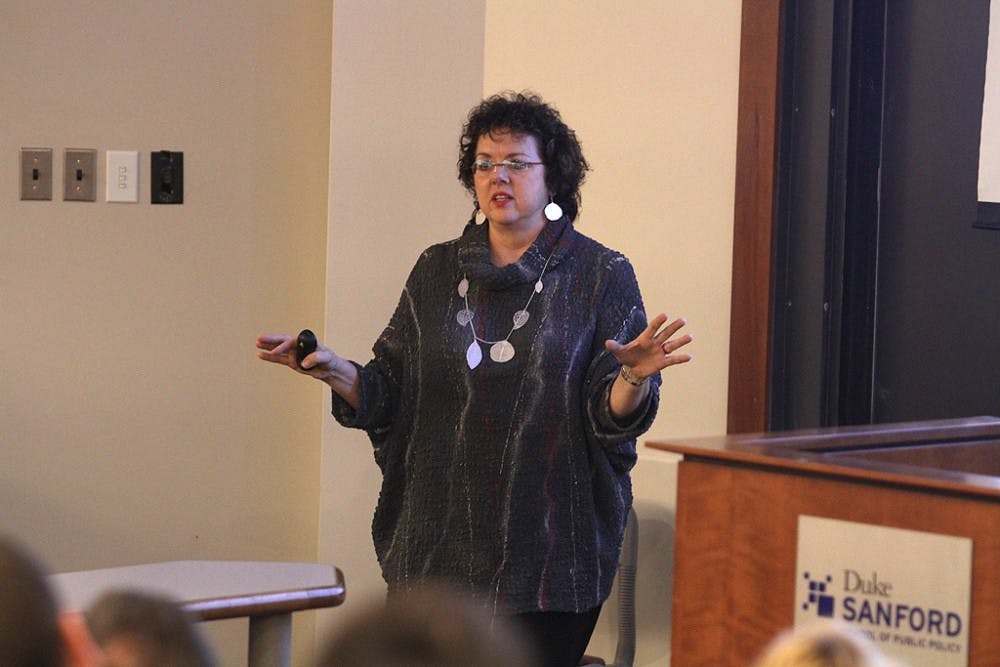Prompted by one student’s death, Duke Global Health Week continues to probe issues of health disparity.
Global Health Week, a student-organized event that began Monday, seeks to educate and engage students and faculty around the topic of global health problems. Established in 2008 to commemorate Duke student and global health advocate Aalok Modi’s death that year, the event features daily themes—including global health at home, maternal and child health and social justice and advocacy, as well as programs such as lectures, a film screening and a mural painting.
“Global Health Week is a microcosm for the type of teamwork that epitomizes the real-world collaboration that is necessary to address complex challenges,” said senior Braveen Ragunanthan, an organizer of the event. “Just as Duke global health student groups come together for a greater cause, multiple stakeholders in the field are needed to make a difference.”
This year’s Global Health Week shifted its focus to advocacy and activism, said senior Ruvi Chauhan, another student organizer for the event. Thursday night, for instance, there was a screening of the film “Women in War Zones,” followed by discussion with Dr. Roger Luhiri, who served as a surgeon treating victims of sexual violence in the eastern Democratic Republic of the Congo.
A global health case competition will take place Saturday at the University of North Carolina at Chapel Hill, in which teams from area universities will compete to develop solutions for a global health problem.
A committee made up of more than 20 participating student groups met in the Fall to begin organizing the event, Ragunanthan said. Members of the participating groups later finalized the themes, speakers and programs.
Ragunanthan said a spirit of collaboration drove the event planning.
“There is no other Global Health Week that is organized by so many groups cohesively coordinating so many events,” Ragunanthan said. “There is enormous momentum for global health institutionally at Duke, and the student initiative behind Global Health Week for the past five years demonstrates this spirit.”
The uniquely student-driven week of events aims to inform, engage and inspire the Duke community to get involved in global health, said Dr. Michael Merson, director of the Duke Global Health Institute.
“Global Health Week represents student activism, engagement and leadership,” Merson wrote in an email Wednesday. “While the DGHI provides advice and some support for Global Health Week, it is the students who design the program and carry out the activities.”
Frances Aunon, Trinity ’10, served on the Duke Global Health Student Action Committee with Modi. Modi’s dedication to global health inspired the committee members to honor him at the highest level when he died in February 2008, Aunon said.
“He always felt that Global Health Week would be a way to unite campus and generate interest for reducing health disparities,” Aunon wrote in an email Wednesday. “When he couldn’t see it to fruition, it just felt right to dedicate the week in his memory.”
After five years, Global Health Week still serves as a call to action, Ragunanthan said.
“As we continue our work along traditional forms of engagement through fieldwork, research [and] fundraising, we should also have the boldness to go to the next level to challenge issues at their root level,” he said.
Get The Chronicle straight to your inbox
Signup for our weekly newsletter. Cancel at any time.

